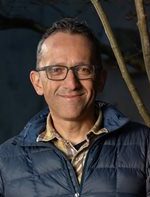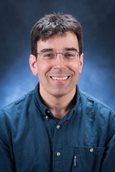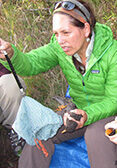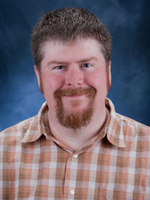Wetland Researchers

North Creek Wetland Faculty Research
The University of Washington Bothell has many faculty members who are actively conducting research in the North Creek Wetland. Several of these professors also tie their research into class material and activities. Any students interested in undergraduate research in the wetland with a specific professor should visit the Undergraduate Research Webpage to learn more about the process and schedule an advising appointment.

Assistant Professor, School of Interdisciplinary Arts & Sciences
Dr. Lopez’ research tries to provide answers to questions such as what kinds of land use and land cover changes are occurring in the wetland and why, and what are the consequences of these changes for biogeochemical cycling, ecosystem functioning and services the wetland provide locally and regionally. The thread that runs through his research is its theoretical and empirical base in GIS (i.e. the science behind geotechnologies such as geographic information systems (GIS), remote sensing, and global navigation satellite systems). His work highlights the creative use of GIS not only as a tool, but more importantly as a scientific framework that can help produce transformative geospatial knowledge of the environments we interact with.

Senior Lecturer, Division of Biological Sciences
Jeff Jensen’s work in the wetland relates mostly to its suitability for and use by salmonid fishes. He is particularly interested in the current status of kokanee salmon (sockeye salmon that do not migrate to the ocean) and the potential establishment/supplementation of a native run.

Senior Lecturer, School of Interdisciplinary Arts & Sciences
Rob Turner chases the water in the wetland. He and his students are working to characterize the changing quality and flow rates of water as it flows downhill from the campus, into various bioswales and ponds in the wetland fringe, across the floodplain wetland, and into North Creek. Turner and his students are particularly concerned with the contributions of the crow roost to the high pathogen and nutrient levels in the wetland surface waters and North Creek. Aside from characterizing what is happening to the hydrology and quality of runoff, Professor Turner is also supporting student research on methods to clean up the water. Specifically, undergraduates are investigating the abilities of mushroom mycelium in extracting pathogens like E. Coli from contaminated streams in the wetland. This involves controlled experiments in the laboratory as well as the placement of mycelium inoculated booms of straw and woodchips in the wetland streams.

Assistant Professor, Division of Biological Sciences
The Chang lab is interested in applying plant community assembly theory to restoration practices in the UW Bothell wetland.

Part-time Lecturer, School of Interdisciplinary Arts & Sciences
Dr. Valdez is a tropical biologist and conservationist with experience in birds of prey and bird community studies. She teaches courses on Ecology, Conservation, natural history, field ecology methods, and also is the director of the UW study abroad program in Peru. Her research is focused on the monitoring of bird communities at the UW Bothell Wetland. Since Spring 2015, Dr. Valdez and students have been working on setting up and establishing a long-term Bird monitoring program. Visual and auditory surveys as well as natural history observations have been conducted during each season to document the diversity and composition of bird communities, as well as distribution on the different habitats found within the UW Bothell wetland. Long-term plans are also to monitor bird population dynamics and to assess the factors that determine the species presence and population changes, and how humans activities may be connected to these. So far, we have detected more than 59 species using the wetland and we are mapping the most frequently visited areas by species. Another goal of our project is to contribute with the education efforts for general public in topic associated with the key role of nature and specially the wetland for human life. In addition, we are collaborating with the Friends of North Creek Forest (FNCF) to conduct surveys and observations of natural history in their forest property. Dr. Valdez welcomes any student who wants to learn and get trained in this project.

Assistant Professor, Division of Biological Sciences
Professor Wacker’s research group studies the behavior and physiology of birds that use the North Creek Wetland and related areas in the state of Washington. Our current projects involve: 1) better understanding the vocal communication of crows on or near nocturnal roosts and 2) determining whether and how large crow roosts alter the behavior and physiology of resident territorial songbirds. Undergraduate students who are interested in field, computer, and laboratory research in animal behavior and wildlife biology should consider joining our research group.
Do Your Own Research
Research in the Wetland Restoration Area
We allow the use of the Campus Wetland for research, but only where it can be done with minimal impacts to the natural resources of the site. Because of this, we encourage observational studies. Experimental studies will be considered, but scrutinized very closely for potential impacts.
- Each individual will take responsibility for his or her own safety and accepts the risks inherent with touring and accessing this area.
- A copy of the research permit must be carried by at least one member of the group at all times when in the wetland. This permit must be displayed upon request to Campus Safety Officers, Facilities staff, or faculty. Failure to have a valid permit will result in removal from the site and possible revocation of the permit.
- Access to the wetland area must be coordinated in such a way as to minimize impacts and avoid disruption to the restoration site and wildlife inhabitants.
- No destructive sampling is allowed unless specifically permitted. This includes the removal of animals, plants, plant parts, soils, rocks, streambed material, water, etc.
- Whenever possible, do not trample the vegetation.
- No sampling devices, stakes, flags, etc. shall be left in the wetland unless specifically permitted. These items must be removed at the end of the research project.
- No harassment of wildlife (including no fishing, no hunting, etc.) is permitted. This includes keeping noise to a minimum.
- No use of chemicals in the stream or floodplain is allowed unless specifically permitted.
- No smoking.
- Do not introduce any plants or animals into the wetland unless specifically permitted. Boots are to be thoroughly cleaned each time prior to entering the wetland. Specific protocols for boot cleaning may be required in different situations to prevent the invasion of non-native species.
- You are required to submit a research report within 60 days of completing your research project. This report should detail your methodology, findings, and interpretations of those results. Submit your report to uwbsust@uw.edu.
Wetland Research Permit Application
Please complete the Wetland Research and Exploration Access Request form. We will strive to process this request as fast as possible, dependent upon the availability of experts to review potential environmental impacts. Please email uwbsust@uw.edu to check on the status of your request. Research permits may take longer to approve depending on the scope of the project.
